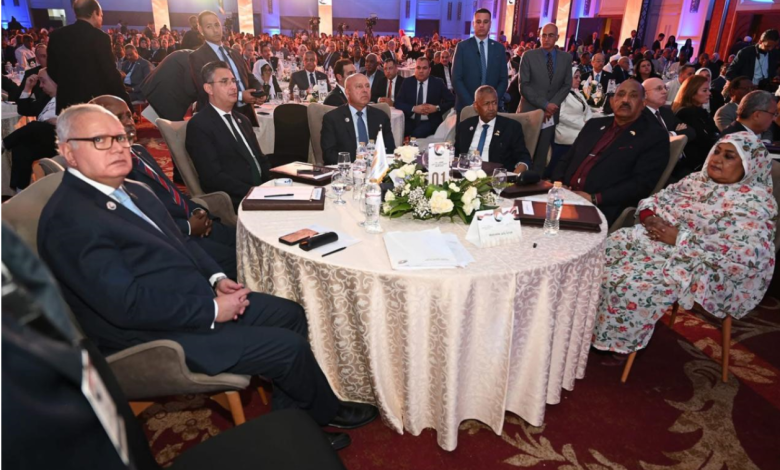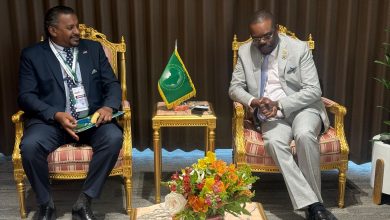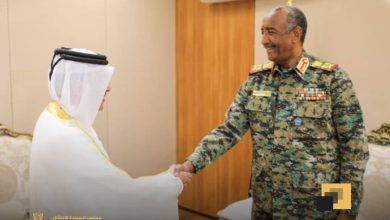
Sudan Events – Agencies
As part of Egypt’s intensified support for Sudan’s reconstruction, an economic forum in Cairo discussed joint investments and economic cooperation between the two nations. The aim was to mitigate the impacts of the Sudanese conflict and enhance food security for both countries.
The Egyptian capital hosted the first “Egyptian-Sudanese Businessmen Forum” on Saturday, shortly after Sudan’s “First Economic Conference.” Officials and businessmen from both nations explored opportunities to expand economic partnerships.
Sudan has been grappling with an internal conflict since April 2023 between the Sudanese Armed Forces and the Rapid Support Forces. The war has claimed thousands of civilian lives and displaced around 13 million Sudanese internally and across neighboring countries, according to UN estimates.
Egypt’s Deputy Prime Minister and Minister of Transport and Industry, Kamel El-Wazir, emphasized in his speech that the challenges facing Egypt and Sudan necessitate “joint cooperation across various sectors.” He reiterated Egypt’s commitment to supporting Sudan in overcoming the crisis and restoring stability.
El-Wazir highlighted several opportunities for boosting trade, industry, and investment, including three land transport corridors and dry ports at the shared border crossings of Qustul and Arqin. Additionally, he announced plans for a Nile navigation port connecting Lake Nasser in southern Egypt to Wadi Halfa in northern Sudan. He also unveiled Egypt’s readiness to extend its high-speed rail project from Abu Simbel to Wadi Halfa, noting that feasibility studies for the project are complete, pending Sudan’s approval.
Egypt and Sudan are connected by two land crossings: the Arqin and Qustul (Ashkit) ports near Wadi Halfa in northern Sudan. These crossings facilitate trade and passenger movement between the two nations.
Kamel El-Wazir urged Sudanese investors to expand their businesses in Egypt, assuring that his government is “ready to eliminate any obstacles for Sudanese companies to benefit from available opportunities in trade and production sectors.” He also highlighted Egypt’s recent reforms to improve its investment climate, such as streamlining company registration processes and supporting small and medium enterprises.
El-Wazir described the forum as a “starting point for industrial collaboration between the two countries, strengthening regional integration and cooperation in food security.”
The forum was attended by a Sudanese government delegation, including ministers of industry, transport, supply, oil, and electricity, alongside representatives of the Egyptian-Sudanese business community and Sudanese expatriate associations in Egypt.
According to official estimates, Egypt currently hosts around 1.2 million Sudanese refugees fleeing the war, alongside thousands who have lived in Egyptian cities for years.
Sudanese Ambassador to Egypt, Emad Al-Din Adawi, stated that the forum aims to establish a “partnership for Sudan’s post-war reconstruction.” He stressed that Egyptian companies, both public and private, “are best equipped to lead reconstruction efforts and rebuild what the war has destroyed.”
Adawi acknowledged the war’s impact on Sudan’s economic activities and trade prospects but noted that “Egypt-Sudan trade volumes remained stable in 2022 and 2023.” He added that the forum seeks to “enhance the partnership to achieve food security.”
Trade between Egypt and Sudan totaled approximately $1.4 billion in 2023, down from $1.5 billion in 2022—a 6.4% decline, according to Egypt’s Central Agency for Public Mobilization and Statistics (CAPMAS).
Egyptian Minister of Supply, Sherif Farouk, highlighted ongoing infrastructure and logistical projects in Egypt, stating that these projects “offer opportunities for Egyptian and Sudanese investors to strengthen their partnerships.”
Meanwhile, Sudanese Minister of Supply and Trade, Omar Mohamed Ahmed, outlined the war’s devastating effects on Sudan’s productive sectors. He called for greater investments in food security and proposed establishing a strategic economic and trade alliance between the two nations.
The forum featured discussions on two key topics: “Reconstruction in Sudan” and “Opportunities for Food Security Collaboration.” Adel Abdel Aziz, Director of the Egyptian-Sudanese Integration Center, estimated Sudan’s economic losses from the war at $89 billion, excluding infrastructure and facility damages. He emphasized that Sudan relies on partnerships with friendly nations like Egypt to navigate its challenges.
Representatives of the business communities from both countries also addressed the forum. Sudanese business leader Saud Moamen stressed the forum’s role in fostering cooperation for reconstruction and ensuring Sudan’s essential commodity needs are met. He expressed the Sudanese private sector’s interest in forming economic clusters with their Egyptian counterparts, particularly in the food industries sector.
Egyptian businessman Naguib Sawiris identified agriculture as one of the most attractive sectors for investment in Sudan, citing its abundant water and arable land. Similarly, Egyptian business leader Ahmed El-Sewedy highlighted agricultural manufacturing as a promising area for investment in Sudan.



